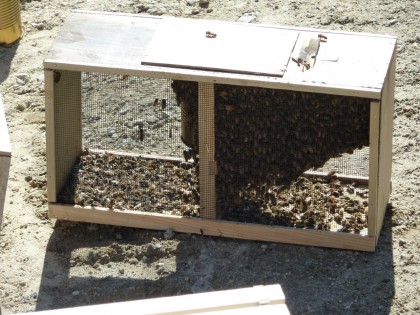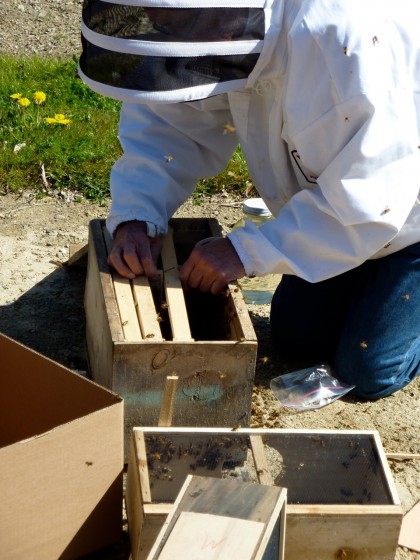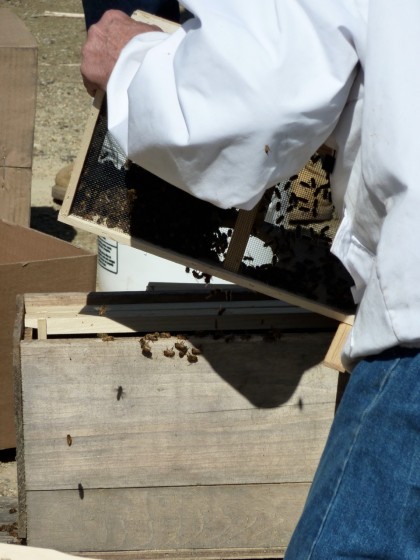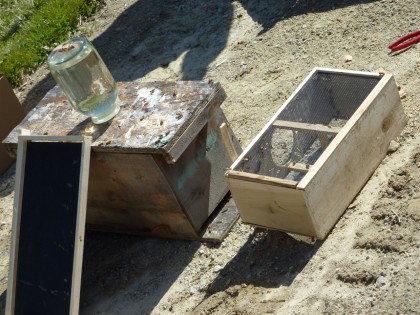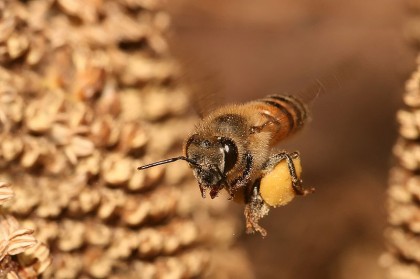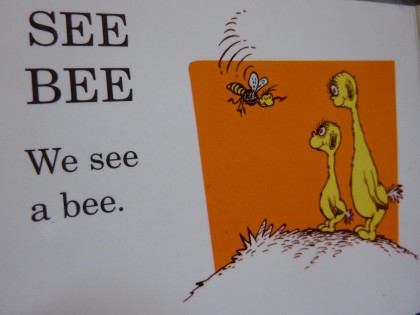David and Coryndon’s bee class made a bee-line (sorry, I had to) out to Smithfield, RI for a visit to Beehavin’ Apiary this past weekend. I’ll let David tell you all about it…
My bee class was invited to watch a demonstration on how to transfer a package of bees into a hive at a local apiary. The package above was developed in the early 20th century as a way to distribute bees by mail. Bees can only live a couple of days without food or water and in the days before the interstate highway system, U.S. mail was the best way to get bees quickly to their new homes.
The queen is in a small wooden box inside a metal can in the lid of the package, she needs to be protected from the other bees for the first several days, until they get to know each other.
The lid and can are removed and the lid temporarily replaced over the opening.
The queen’s box is placed in the center of the new hive, it has a sugar candy plug in the end which the bees will eat through, at first they want to get at her to kill her but over the course of eating their way in to her, they will become accustomed to her smell and by the time they free her it’s one big happy family in the hive.
Once the queen’s box is in place, the bees in the package are dumped gently into the hive. They recognize it immediately as a great place to start a home and move right in.
The hive will need to be fed a 1:1 mixture of sugar and water (in the glass jar) until nectar is flowing in the flowers surrounding the hive. The hive shown here is called a nuc (short for nucleus) and only has five frames in it, it’s a kind of temporary hive.
Some bees wil be reluctant to leave the package so it’s left open near the hive entrance for a day or so. In two days it will be time to check that the queen has been released, if not she’ll need to be freed by hand. And then she will lay eggs — up to 1,500 per day!
